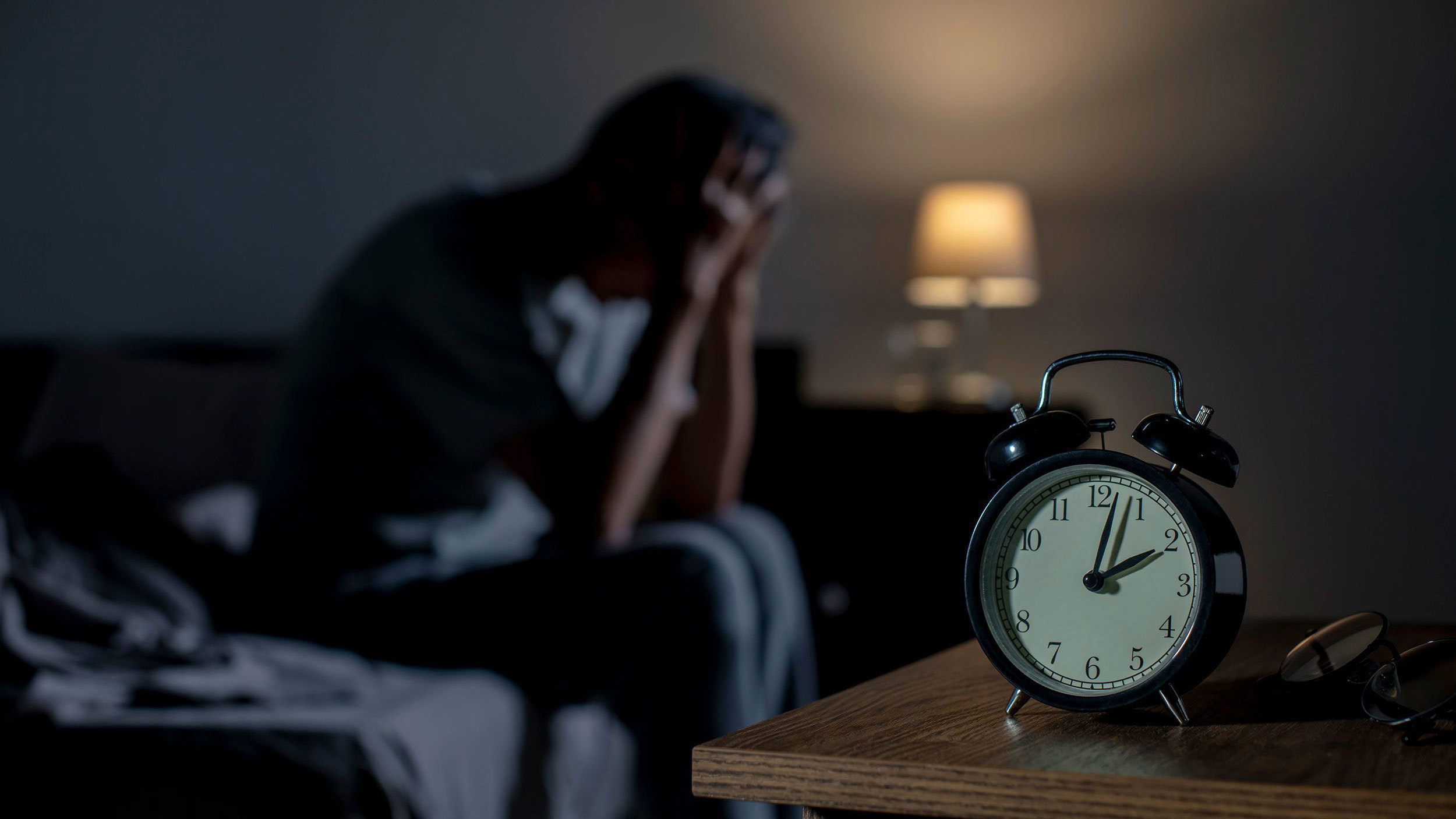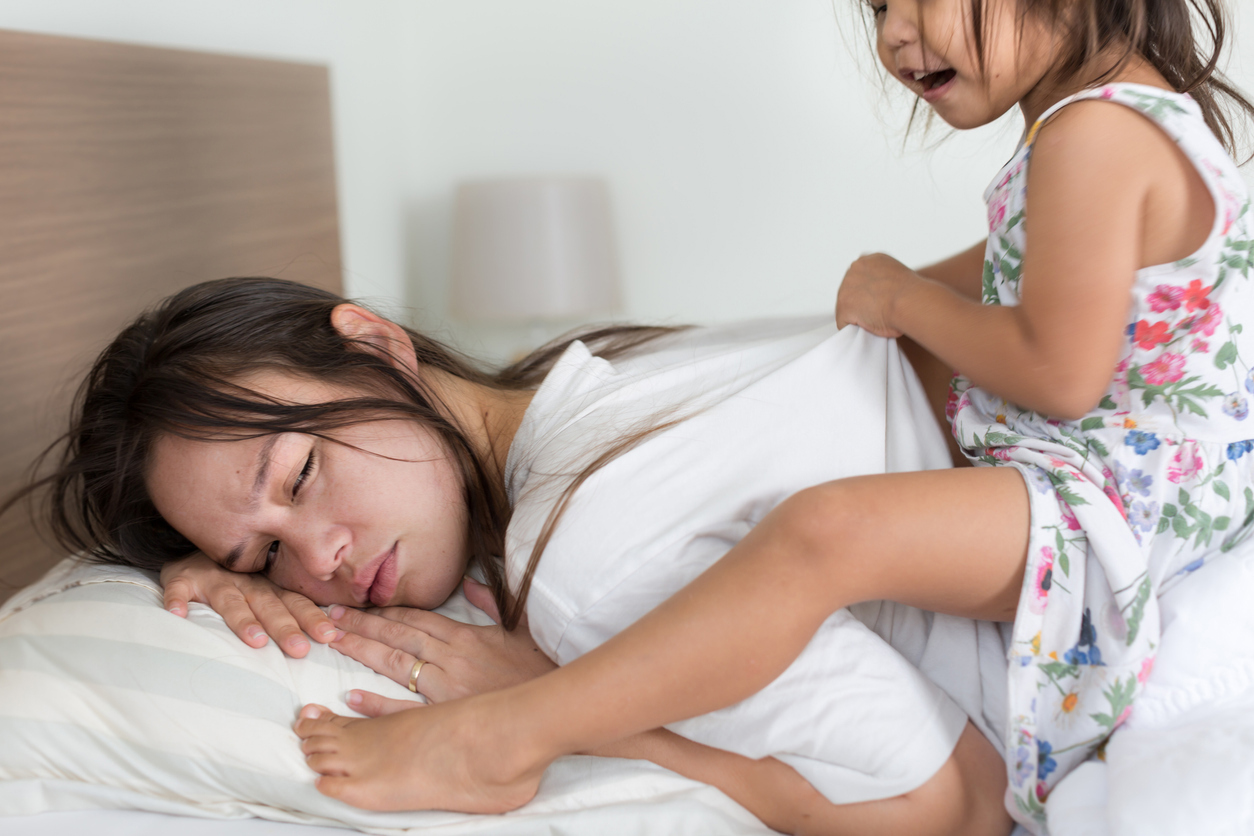If you have trouble falling asleep or staying asleep, wake up too early most days or have other signs of insomnia, you may be at higher risk for stroke, a new study found.
The more symptoms of insomnia you have the higher the risk, especially if you're younger than age 50, according to the study, which followed over 31,000 people with no history of stroke for nine years. Stroke risk is typically higher in older adults with more health problems, the study noted.
After controlling for other factors that contribute to stroke risk, researchers found people with five to eight symptoms of insomnia had a 51 percent increased risk of stroke compared with people who did not have insomnia, according to a statement on the study published Wednesday in the journal Neurology.
READ MORE: Sleeping this way could add five years to your life

In comparison, people who had one to four symptoms had a 16 percent increased risk of stroke compared with people with no symptoms of insomnia, the study found.
Symptoms of insomnia can include trouble falling asleep; waking up during the night; waking up too early in the morning; not feeling well rested; daytime sleepiness; anxiety, depression and irritability; worry about sleep, increased errors or accidents; and difficulty focusing, remembering or paying attention, according to the Mayo Clinic.
"There are many therapies that can help people improve the quality of their sleep, so determining which sleep problems lead to an increased risk of stroke may allow for earlier treatments or behavioural therapies for people who are having trouble sleeping and possibly reducing their risk of stroke later in life," said lead study author and epidemiologist Wendemi Sawadogo, a researcher at the Virginia Commonwealth University in Richmond, in a statement.
Similar research
A study published in April that analysed data on over 4,500 people found similar results for other types of sleep disorders.
Results showed people who slept less than five hours a night, which can occur with insomnia, were three times more likely to have a stroke than those who regularly got seven hours of sleep — the recommended minimum for adults, according to the US Centers for Disease Control and Prevention.
READ MORE: Warning for Australian companies as productivity plummets
Sleeping too much was also problematic. Getting more than nine hours of sleep on average was linked with a twofold increase in stroke risk.
The results held true even after adjustments to eliminate other issues that can lead to stroke, including depression, alcohol abuse, smoking and a lack of physical activity, according to the April study.

Having sleep apnea — a condition in which people stop breathing multiple times per hour — was associated with a threefold increase in stroke risk, according to a statement on the April study.
Snoring or snorting, which can both be signs of untreated sleep apnea, were also risk factors. People who snored were 91 percent more likely to have suffered a stroke, while those who snorted were almost three times as likely to have had a stroke than those who did not.
Napping also increased the chances of stroke, the statement said. People who on average napped for over an hour were 88 percent more likely to suffer a stroke than those who did not. However, taking a planned nap of less than an hour was not associated with an increased stroke risk, the study said.
Sleep disorders and stroke
Why are sleep issues connected to stroke? Dr. Phyllis Zee, director of the Center for Circadian and Sleep Medicine at Northwestern University's Feinberg School of Medicine in Chicago, told CNN in a prior interview that short, fragmented sleep and sleep apnea can disrupt the body's ability to regulate metabolism, blood pressure and inflammation — all risk factors for stroke.
"Poor sleep can impair the natural blood pressure dipping that occurs during night time sleep and contribute to hypertension — an important risk factor for stroke and cardiovascular disease," Zee said via email.
"In other population based research, similar relationships have been reported between poor sleep health and disorders such as diabetes, heart disease and dementia," she said.
Practicing good sleep hygiene, eating a healthy diet and getting regular exercise are all key ways to reduce the negative impact of sleep disorders and reduce risk of stroke and cardiovascular disease, said Dr. Andrew Freeman, director of cardiovascular prevention and wellness at National Jewish Health in Denver, in a previous interview.
"What I always tell people is, you know, getting about seven hours a night of uninterrupted sleep is associated with the least amount of cardiovascular disease," he said.
Sign up here to receive our daily newsletters and breaking news alerts, sent straight to your inbox.
